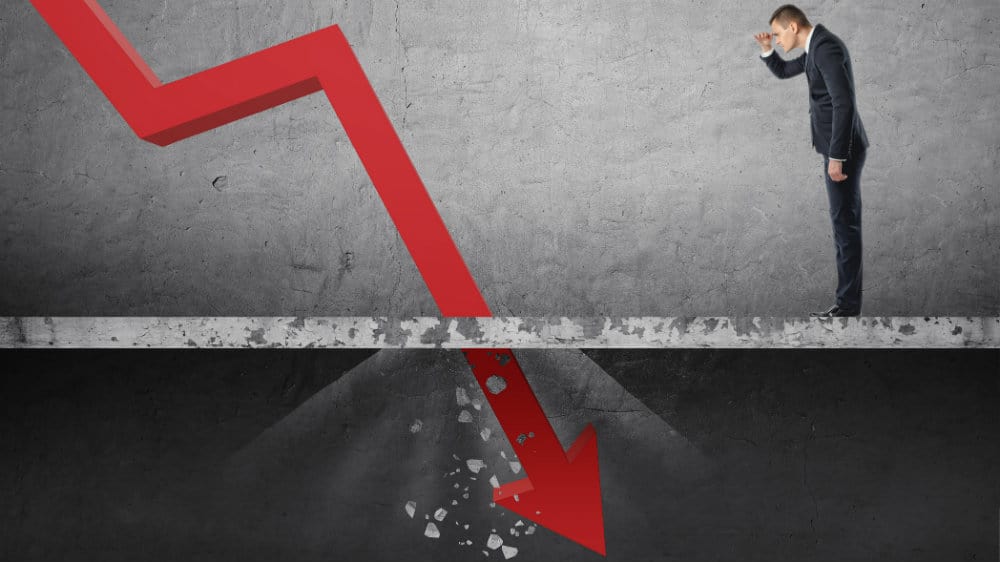Fed Rate Cuts Could Crash Crypto Market, Warns Arthur Hayes
18.09.2024 15:00 1 min. read Kosta Gushterov
At the Token2049 event on September 18, Arthur Hayes, co-founder of BitMEX, warned that upcoming interest rate cuts by the U.S. Federal Reserve could trigger a major downturn in the crypto market.
Hayes argued that the expected 25 to 50 basis point reduction might destabilize markets, including Bitcoin, if implemented. He emphasized the risks of a 50 bps cut, estimating a 60-70% chance it could happen, but labeled such a move as a potential error under current economic conditions.
He explained that a rate cut would reduce the interest rate gap between the U.S. dollar and the Japanese yen, which could lead to the unwinding of carry trades and market disruptions. Hayes pointed out that a similar situation nearly caused a crisis when the Bank of Japan raised interest rates.
Hayes has been earning 5.5% on Treasury bills over the past year and noted that low-yielding assets, like Ethereum, have struggled to compete.
However, he suggested Ethereum could become more appealing if Treasury yields drop following the anticipated rate cuts. Hayes advised considering investments in Ethereum and other assets like Pendle and Ethena’s USDe as market conditions shift.
He also recommended looking into Treasury bonds, proposing an approach where bonds are structured to provide interest-paying certificates to investors.
-
1
U.S. PCE Inflation Rises for First Time Since February, Fed Rate Cut Likely Delayed
27.06.2025 18:00 1 min. read -
2
Key U.S. Economic Events to Watch Next Week
06.07.2025 19:00 2 min. read -
3
Gold Beats U.S. Stock Market Over 25 Years, Even With Dividends Included
13.07.2025 15:00 1 min. read -
4
U.S. Announces Sweeping New Tariffs on 30+ Countries
12.07.2025 16:30 2 min. read -
5
US Inflation Heats Up in June, Fueling Uncertainty Around Fed Cuts
15.07.2025 16:15 2 min. read
Greed Holds as Market Momentum Builds: What is the Market Sentiment
The crypto market remains firmly in “Greed” territory, with CoinMarketCap’s Fear & Greed Index clocking in at 69/100 on July 19. Despite a modest 24-hour dip from 71, the index has now held above 60 for 11 consecutive days.
Top 7 Crypto Project Updates This Week
The crypto industry saw major advancements this past week across DeFi, NFT, Layer 2, and AI-powered platforms.
Peter Thiel-Backed Crypto Exchange Files for IPO
Cryptocurrency exchange Bullish, backed by billionaire investor Peter Thiel, has officially filed for an initial public offering (IPO), marking a major step toward entering the public markets.
Tether Plans U.S.-Issued Stablecoin After Trump Signs GENIUS Act
With President Trump officially signing the GENIUS Act into law, the regulatory landscape for stablecoins in the U.S. has entered a new phase—prompting major reactions from the industry’s top players.
-
1
U.S. PCE Inflation Rises for First Time Since February, Fed Rate Cut Likely Delayed
27.06.2025 18:00 1 min. read -
2
Key U.S. Economic Events to Watch Next Week
06.07.2025 19:00 2 min. read -
3
Gold Beats U.S. Stock Market Over 25 Years, Even With Dividends Included
13.07.2025 15:00 1 min. read -
4
U.S. Announces Sweeping New Tariffs on 30+ Countries
12.07.2025 16:30 2 min. read -
5
US Inflation Heats Up in June, Fueling Uncertainty Around Fed Cuts
15.07.2025 16:15 2 min. read


